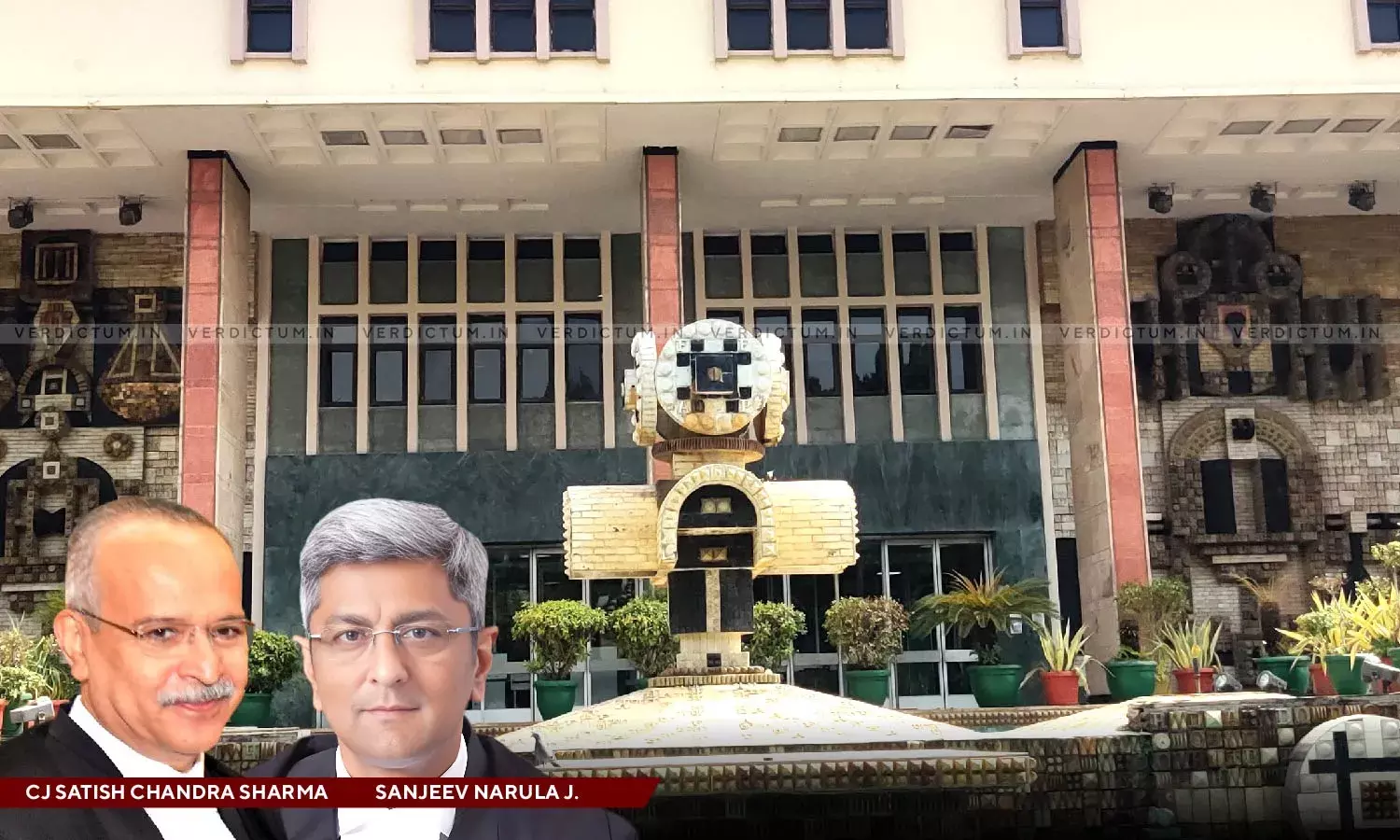Mehrauli Residents Were Not Accorded An Opportunity To Be Heard U/S 30(1) Of DDA Act: Delhi High Court Quashes Demolition Notice Of Removal Of Encroachment In Archaeological Park
The Delhi High Court noted that the Residents of Village Mehrauli were not accorded a fair and just opportunity to be heard before delivering a demolition notice by the Delhi Development Authority (DDA) regarding the removal of encroachments in Mehrauli Archaeological Park (Park).
The Court while setting aside the demolition notice observed that the procedure prescribed under Section 30 of the Delhi Development Authority Act, 1957 (DDA Act) ought to have been followed even if the DDA was working according to Court orders or on environmental imperatives.
The Bench headed by Chief Justice Satish Chandra Sharma and comprising Justice Sanjeev Narula observed, “However, it remains unchallenged that the persons affected by the demolition drive were not given the opportunity to present their case before the authorities, which is a procedural safeguard enshrined in the DDA Act. The Court’s involvement in overseeing the conservation efforts does not exempt the DDA from adhering to the statutory procedures laid down by the legislature”.
Senior Advocates Ashish Dholakia and Garima Prashad appeared for the Dargha Najeebuddin Firdousi (Petitioners) and Standing Counsels Sanjay Kumar Pathak, Sanjay Katyal, Tushar Sannu and Ajay Digpaul appeared for the State/DDA (Delhi Development Authority/Respondents).
The Indian National Trust for Art and Cultural Heritage (INTACH) had filed a PIL to restore and protect the park. The DDA was ordered to secure the area and remove encroachments. The DDA therefore issued a demolition notice but the order was stayed by the High Court. The DDA then applied to transfer the matter to the Supreme Court. Multiple Writ Petitions were filed by the residents of khasra No. 1151/3 of Village Mehrauli. The residents challenged the demolition process undertaken by the DDA to remove encroachments in the Mehrauli Archaeological Park (Park). The Residents contended that the demarcation report was flawed as it used incorrect methodology. The Residents also contended that since the demarcation report was incorrect, the demolition could be carried out without damaging their properties.
The Court noted that such an intricate dispute over boundary delineations would not be covered in the ambit of the writ. Marking boundaries rests within the expertise and jurisdiction of statutory authorities. The Court observed that such specialized bodies are better equipped to navigate the technical complexities of land demarcation. Therefore, the Court observed that it was restrained from delving into such technical assessment.
“These specialized bodies are better equipped with the necessary technical expertise to navigate the complexities of land demarcation and are statutorily authorized to resolve such disputes, including considering the objections submitted by any aggrieved parties. Therefore, this Court finds itself constrained by its constitutional limits and the nature of jurisdiction invoked from delving into such technical assessments”, the Bench noted.
The Court took note of the DDA’s objections, that Petitioner ought to justify their right over disputed properties. The Court noted that settling contested facts falls beyond the jurisdiction of the High Court under Article 226 of the Constitution.
The Bench observed, “Given these circumstances, this Court is not in a position to act as a civil court to affirm the Petitioners’ status as owners or lawful occupants of the properties in dispute, especially in light of the DDA’s strong opposition, based on their evaluation of the evidence provided. Such declarations are rightly within the jurisdiction of civil courts, where, through an appropriate trial, all evidence can be considered in its entirety”.
The Court, regarding the validity of the demolition notice, noted that DDA did not provide an opportunity to the residents. The Court observed that even if the DDA was working per Court orders or under environmental imperatives, the DDA would still have to follow the prescribed procedure.
Therefore, the Court granted the Residents the right to present their case before the competent authority or courts of jurisdiction, which possess the statutory mandate to resolve such matters. The Court directed DDA to accord a reasonable and fair opportunity to be heard under Section 30(1) of the DDA Act.
Accordingly, the Court set aside the impugned demolition notice and disposed of the Petitions.
Cause Title: Dargha Najeebuddin Firdousi v Delhi Development Authority & Anr (2023:DHC:8121-DB)




